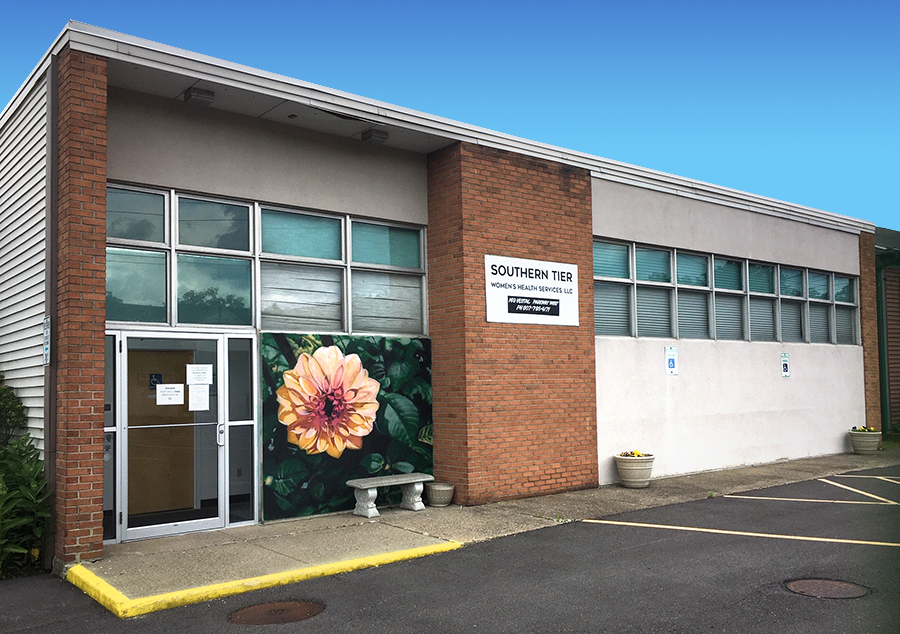Since the U.S. Supreme Court overturned Roe v. Wade last June, abortion access has been stuck in a state of limbo across the United States.
Though abortion rights have been threatened nationwide, they are still protected in New York state, one of the first to legalize abortion in 1970 — three years before the Roe v. Wade decision. Those seeking an abortion in New York state can receive one until 24 weeks post-fertilization, unless the fetus is not yet viable or the pregnant person’s life or health is in danger. Founded by abortion rights activist Margaret “Peg” Johnston in 1981, Southern Tier Women’s Health Services, located in Vestal, has been serving those seeking reproductive health care for over four decades.
Amanda Paradysz, the service’s assistant director, said that Johnston strived to reduce stigma and harm for those looking to terminate a pregnancy.
“Her motto was ‘say the damn word,’” Paradysz said. “Because people don’t like to say the word abortion. They treat it like it’s a dirty word that you can’t say. You can only talk about it behind closed doors.”
The Reproductive Health Act, passed by the State Legislature in 2019, codified Roe protections in New York state. State Sen. Lea Webb also recently passed a 12-bill legislative omnibus to protect pregnant individuals and advance reproductive justice.
“I am especially proud that one of my very first votes as a freshman senator was on the second passage of the Equal Rights Amendment (ERA), which means that when New Yorkers go to the polls to vote this coming November, they will have the opportunity to protect the right to abortion in our state constitution,” Webb wrote in an email.
The National Abortion Federation and the New York Abortion Access Fund work with Southern Tier Women’s Health Services to increase the affordability of care, according to Alisha Kinsley, an administrative assistant at the treatment center. Family Planning of South Central New York, on Binghamton’s Hawley Street, can sign patients up for presumptive Medicaid, a 45-day emergency program, that typically covers 100 percent of their visit. Those under their parents’ insurance can sign a waiver if their insurance cannot be used for confidentiality reasons.
A crisis pregnancy center— a facility that dissuades patients from receiving an abortion— is located near Southern Tier Womens Health Services. Kinsley said that sometimes, the crisis center will trick patients seeking abortion care into entering their building to try and “talk them out of it.” There are also typically anti-choice protestors outside the health service during clinic hours— every Wednesday and Thursday— who are usually religiously affiliated.
Dara Silberstein, an associate research professor of women, gender and sexuality studies and director of the women’s studies program at Binghamton University, explained that the ultimate goal should be the passage of a constitutional amendment to protect reproductive rights in the United States.
“That’s not going to happen easily, but that should be the movement,” Silberstein said. “I think popular sentiment supports it. We’ve seen even in the most conservative states that when abortion has been on some kind of voting referendum, the votes have been pro and protected abortion.”
In Ohio, a state with a Republican governor and that voted for former President Donald Trump twice, voters overwhelmingly passed a measure to add abortion rights into their state constitution. Similarly, Kentucky saw incumbent Democratic Gov. Andy Beshear win reelection on a platform emphasizing his support for abortion access.
While reproductive rights are protected in New York state, the Supreme Court will soon hear a case determining whether Mifepristone, an abortion pill, could be federally banned. Some states have total bans, while others have six-week bans or other restrictions that are also barriers to access, according to Abbey Scherer, the president of BU’s Abortion Advocacy Coalition and a senior majoring in social work.
Minors do not need parental consent to receive an abortion in New York state. However, across the border in Pennsylvania, patients under 18 must either receive parental consent or a judicial waiver to have the procedure. Southern Tier Women’s Health Services sees many patients under 18 from Pennsylvania seeking their help.
“It’s all about access,” Scherer wrote in an email. “Abortion is legal for up to 24 weeks in [New York state], but not everyone has access for different reasons. Cost, insurance coverage, wait times, distance to clinics and harassment from protestors are all barriers that many people in New York [state] face. Educating the community on how to self-manage their abortions, avoid crisis pregnancy centers and use the resources available to them are all things that will help overcome these barriers.”



